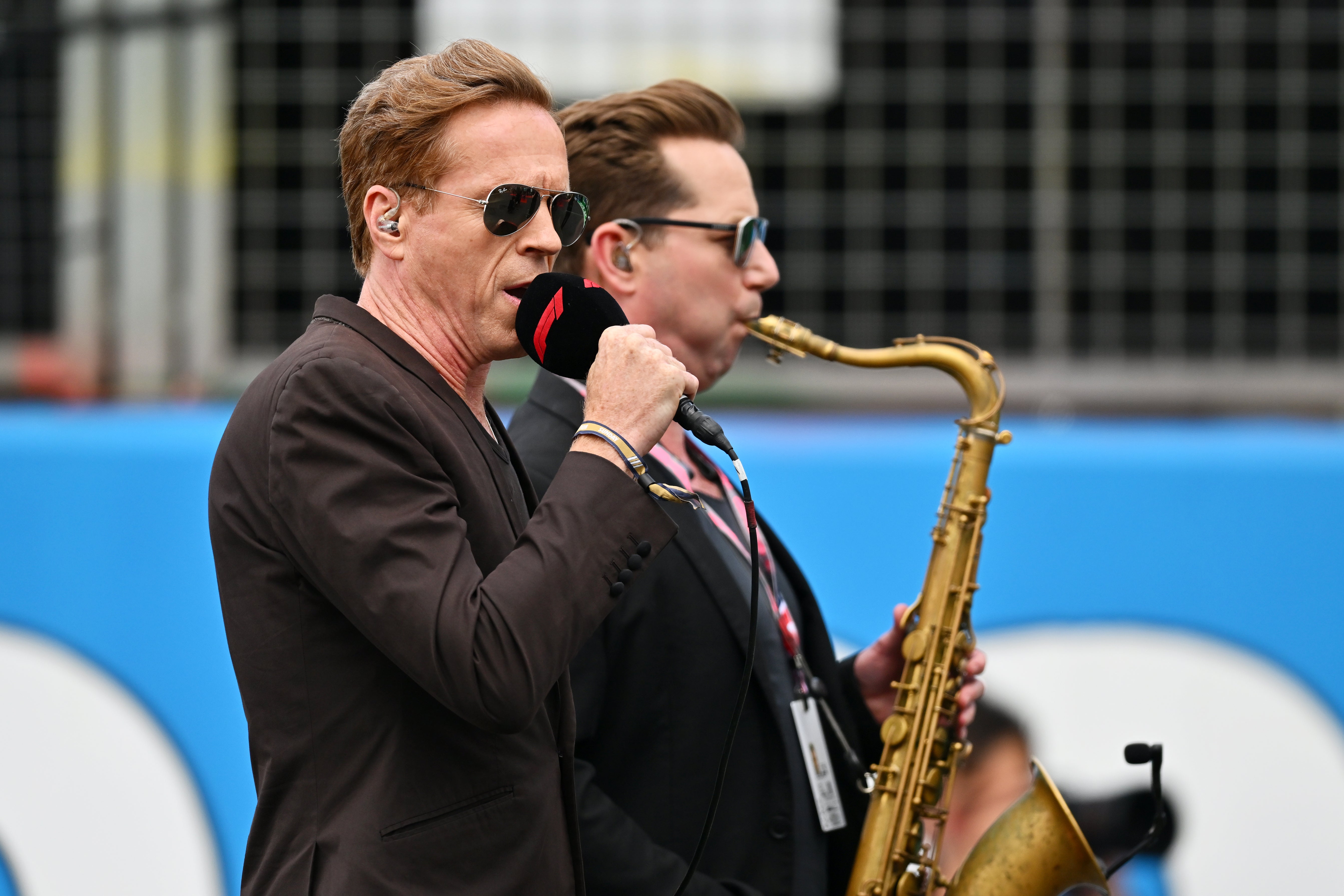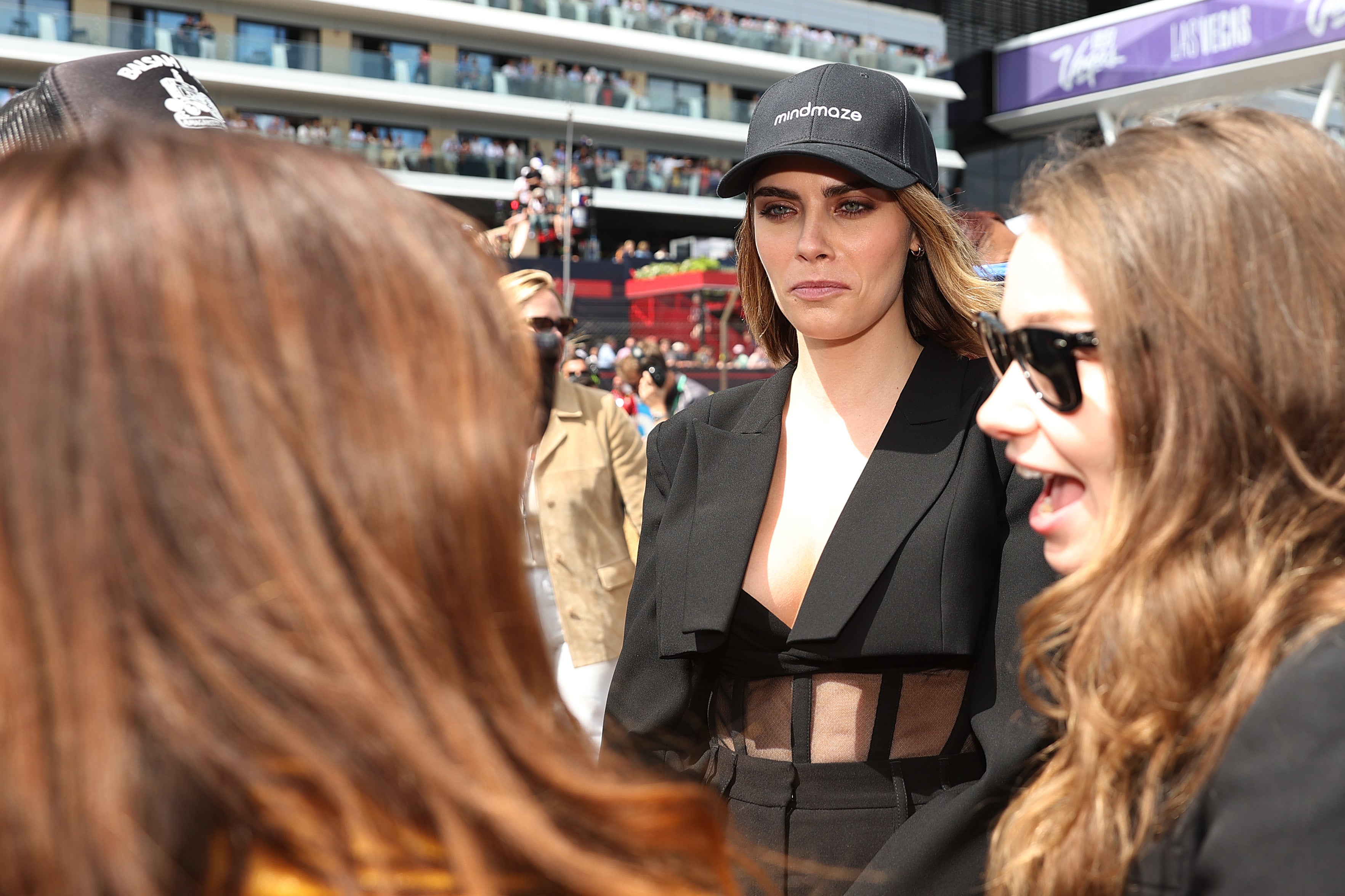God save us from Damian Lewis and the new sporting razzmatazz!
Britain’s sporting entrepreneurs should trust fans who come for the main event, writes Jim White – not the flash-mob, half-time show, cuddly mascot, or anthems no one asked for


At the start of last weekend’s LIV Golf tournament at the Centurion Club, Hemel Hempstead, a rather odd thing happened. Ahead of the tee off, just before the players were introduced to a sparse crowd of enthusiasts occupying a bank overlooking the 18th green, a group of about a dozen people boldly rushed on to the grass.
For a moment it looked as if this was to be the latest target of the Just Stop Oil protests, that the green was about to be dyed orange. Which, if nothing else, would have given an unexpectedly sectarian tinge to the eco-warriors efforts. But, as music suddenly blared from the public address system, and the invaders cranked up a busy bit of cliched choreography, it quickly became clear this was an intentional, pre-arranged course invasion. This was a flash mob, dancing to LMFAO’s “Party Rock Anthem”, with its insistent lyric that “everybody’s in the house tonight”. Although judging by the paucity of the watching crowd, in this instance, that was a line that jarred at the edges of truth.
Still, the bemused reaction of the few who were in attendance was indicative: now that LIV Golf has effectively taken over the running of the sport, if this gaudy, ludicrous, wholly unnecessary intervention is the future of golf, then God help us all.
Though in truth, LIV Golf’s organisers were simply following the growing trend among those in charge of our sporting events. Like many things, it is an approach borrowed from across the pond. Copying the imperative of the Super Bowl (which now regards itself as the US’s principal public cultural event), fearful of leaving a moment unfilled, they are increasingly larding on the razzmatazz in the forlorn attempt to make their events seem the most exciting thing around. It is almost as if they cannot trust the sport itself to keep us entertained.
Take this year’s FA Cup final in May. The traditions of the build-up have been long etched into the occasion’s fabric. And there isn’t much to it: a bit of communal singing of “Abide With Me” and some military marching bands about the sum total. The rest of the atmosphere construction used to be left to the fans themselves, who, in times gone by, would increasingly fill the stadium with competitive chanting. Not anymore. Now, the time ahead of the match is occupied with pyrotechnic displays, flag waving and wobbly inflatables, soundtracked by a cacophony of second-rate music booming out at ear-melting volume. Conversation has become impossible: no wonder so many prefer to stay in Wembley’s bars rather than head to their seats before big games there.

And that seems to have become the blueprint. Don’t trust the fans to create their own atmosphere, blast them instead with flamboyance and flutter. And if you can get a celebrity involved so much the better. At Wimbledon, the most prim and proper of occasions which likes to give the impression its tradition will never be willingly undermined, the dependence on celebrity grows ever more evident. Each morning, a list of invitees to the Royal Box is issued, pored over to check out whether Bradley Cooper is in the house. And if he is, the BBC cameras will ceaselessly broadcast his reactions. Even the players seem obliged to notice. The British contender Jodie Burrage suggested last week that the single most exciting moment of her first ever appearance on Centre Court was not the history of the arena seeping out of every blade of grass – it was the fact that David Beckham was there to watch her.
And, even as the LIV Golf crowd were watching on in bewilderment at a pointless dance intervention, at Sunday’s British Grand Prix at Silverstone somebody thought it a good idea to ask Damian Lewis to deliver the national anthem ahead of the race, accompanied only by a bloke tooting on a saxophone. A superb actor he might be, but his rendition of God Save the King was so extraordinarily off-key it was hard to escape the suggestion he is a sleeper republican. Many among the 150,000 spectators wished he had behaved a bit more like his fellow celebrity at the event Cara Delevingne, who had pointedly snubbed all hint of a microphone when she was accosted during the pre-race grid walk.
Delevingne surely had a point: she was there as a spectator, not as part of the entertainment. She preferred to leave it to those who knew what they were doing. Let’s hope Britain’s sporting entrepreneurs noted her behaviour because our sports events would be all the better if they were a bit more Delevingne and a bit less Lewis. As for flash mobs, it would be best to leave them where they belong: in your local shopping centre.




Join our commenting forum
Join thought-provoking conversations, follow other Independent readers and see their replies
Comments